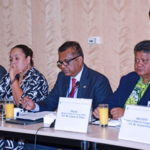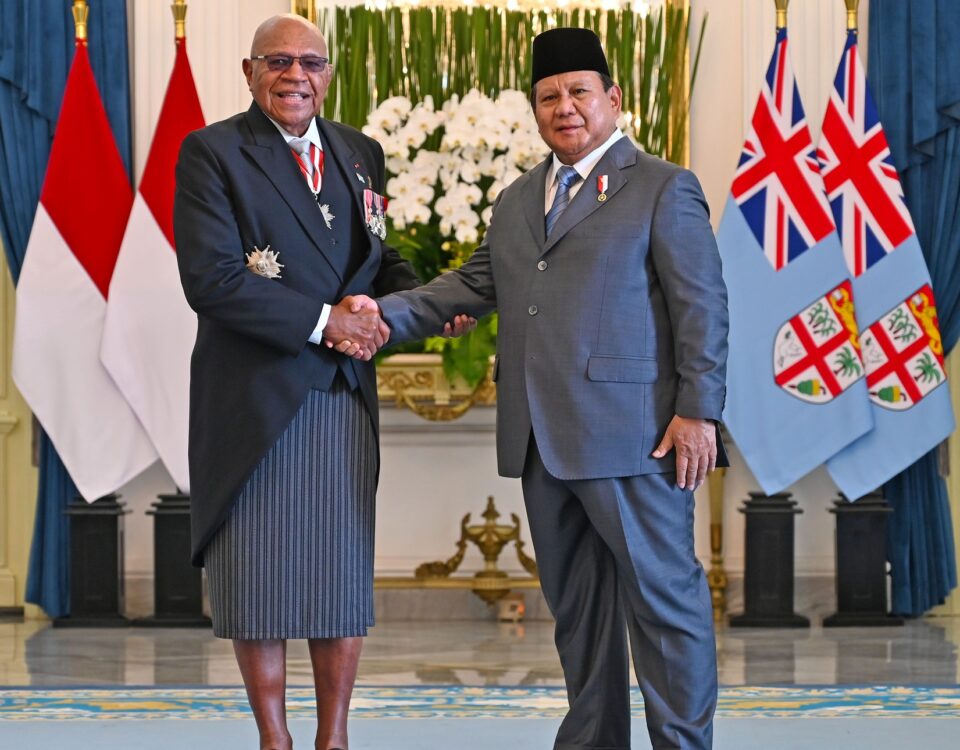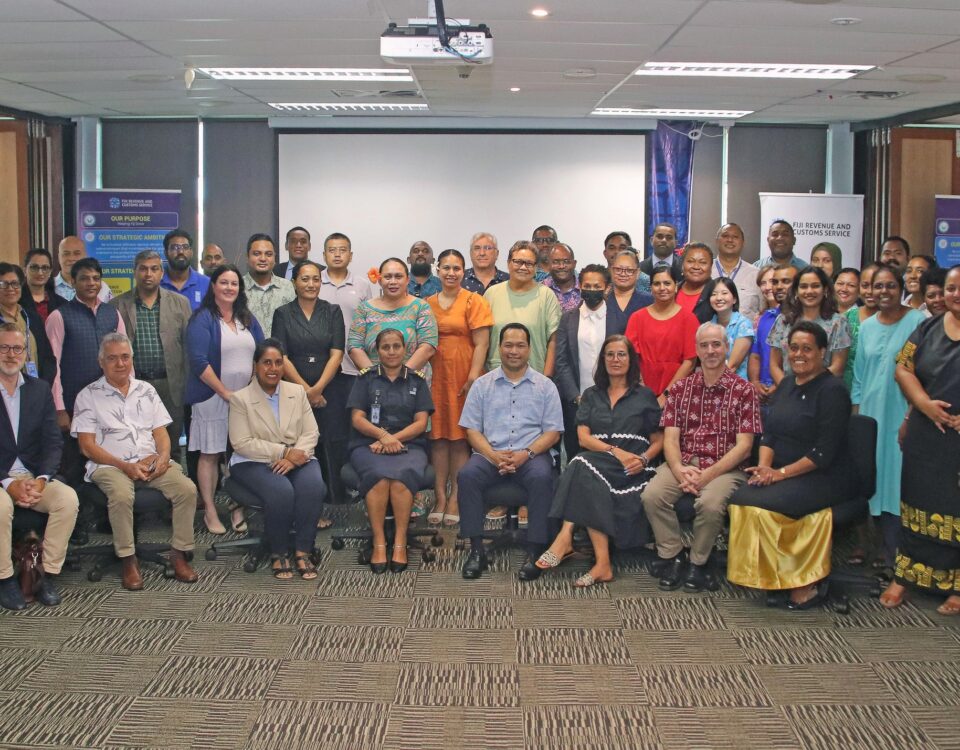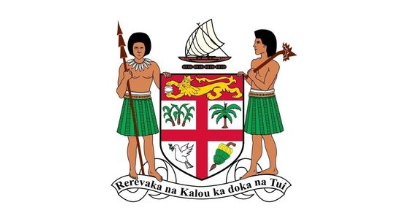
Fiji’s PM launches the 2050 strategy for the Blue Pacific Continent at the UN
24/09/2022
Small Island developing states in a battle for their future: PS Karan in New York
24/09/2022Published On: 24/09/2022
President of the UN General Assembly, Csaba Korosi;
Secretary General, Antonio Guterres;
Excellencies; Ladies and Gentlemen.
Bula Vinaka and good morning.
First, I congratulate you, Your Excellency Csaba Kőrösi, on your election as the President of the General Assembly. I also commend your predecessor, Foreign Minister Abdulla Shahid of the Maldives.
In a year of challenge, I am here to condemn not one but three great global conflicts.
The first is Russia’s war of aggression on Ukraine –– a scourgethat reflects a brutal mentality of conquest and empire. No matter their size, no matter their might, Fiji is unafraid to condemn any warring nation. We owe nothing less to the Fijianpeacekeepers who have sacrificed and paid the ultimate price for peace’s sake around the world. We in the Pacific, who have lived the horror of nuclear fallout, wholly denounce Mr. Putin’sthreatened use of nuclear weapons. And I appeal to him: Give diplomacy a chance to bring this war to a speedy close.
We too condemn another war – the climate war – that humanity is waging on itself, our ecosystems, and ocean. This war isn’t fought with bullets and bombs, but apathy, denial, and a lack of courage to do what we all know what must be done. This is a war we are losing in every community, city, and country of every size. But small states, those least responsible, stand tolose the most of all. Yet we are not heard – not even, it seems, by the leadership of some multilateral development banks. And so lastly I condemn the cold war of indifference against the citizens of small islands and states who bear the brunt of this super-storm of global shocks, from rising commodity prices, to the climate crisis and the pandemic.
Surely, as leaders, we have the capacity to defend peace on all these fronts. I ask: where is the world’s courage to do so?
I see that courage in the Fijian people I serve as we build up ourcountry undaunted by these challenges. Today I will share theirstory – not for the sake of pride, but because leaders should know the lives, the progress, and the aspirations they threatenwith their inaction.
I arrived this week from the funeral of Her Majesty Queen Elizabeth II – a leader who holds a special place in Fijian history and in the hearts of the Fijian people, including my own. My fondest memory of Her Majesty was in London, four years ago, at a welcome reception she hosted at the Commonwealth Heads of Government Meeting. She walked over to me from her greeting post to say that she had asked the then-Prince Charles to look after their other guests so that she could personally welcome me and Fiji back into the Commonwealth. It was a simple gesture, but a special affirmation of all that we had worked to achieve for Fiji’s new and true democracy.
For we had done away with an undemocratic system that relegated hundreds of thousands of Fijians to the margins of society by design. We had adopted a new Constitution that echoed the spirit of the UN Charter’s promise to uphold equal rights for all peoples regardless of background, religion,ethnicity, gender, age, or physical ability or province. It guaranteed common and equal Fijian identity and citizenship for all citizens. The strong and accountable institutions it established and the protections it upholds, produced an electoral system in which every Fijian vote holds equal value. And the Fijian people have used that vote to elect my government twice in the last eight years.
In our service, we have worked to advance the civil, political,and socioeconomic constitutional rights of every Fijian –– from the protection of indigenous land ownership, to the right to clean water and adequate sanitation, the right to a clean and healthy environment, and the right to education, among many more. Since 2014, we have built or replaced hundreds of kilometres of water pipelines and improved access to clean water to over 80percent of all Fijians.
Thousands of Fijian households have gained access to electric power for the first time –– propelling electricity access in the country upwards of 96%.
We have replaced or outright built dozens of bridges and crossings and lit up the country with thousands of new streetlights. We have built, upgraded, or rehabilitated close to 1,000 kilometres of roads.
Poverty is falling, incomes are rising.
The cost of data has fallen by as much as 98%.
95% of the Fijian population have mobile phone connectivity. And a national digital television platform, Walesi, reaches all 110 populated islands in Fiji. We achieved the longest stretch of economic growth in Fijian history. Among these wins for sustainable development, the Fijian education revolution is my greatest pride as Prime Minister.
For the first time in our history, primary and secondary education are free—not free in name, but free in fact and accessible to all. Textbooks are free. Whether they travel by road, river, or ocean, disadvantaged students’ transportation to schools is subsidized. We have extended opportunities for tertiary education beyond what was ever thought imaginable. And, today, Fijian women outnumber men in our universities.
In times of crisis, our constitutional commitments to every Fijian have served us best and mattered most.
The COVID-19 pandemic contracted our economy by over 20 percent. It stole half of government revenues, flung over 100,000 Fijians out of full-time employment, and pressed us to the precipice of a socioeconomic crisis. Through decisive policy choices, we maintained the strongest possible focus on protecting people and communities. Though our tourism revenue was zero – we paid out income support to the unemployed. We did not slash a cent of our pensions and payments to elderly and disabled Fijians. In total, we paid out half a billion dollars in social assistance – the equivalent of ten percent of the value of our GDP.
With our partners support, we achieved the near universal vaccination of our adult population. We re-opened Fiji’s borders from this past December and we have since welcomed hundreds of thousands of visitors and earned hundreds of millions in revenue. More of our people are working again and we are set toward record-breaking double-digit economic growth for the Fijian economy this year. The pace of our recovery is possible because we prepared for it. We kept our national airline, Fiji Airways, ready to resume full operations throughout the COVID crisis. We supported our tourism industry to weather the storm. That allowed us to set the terms of our re-opening. With our steady recovery, we are now paying out tens of millions of dollars to help the most vulnerable Fijian families meet the globally-rising cost of food, fuel, and other essentials.
Excellencies, our eight-year-old democracy has delivered the equality our people cherish. It has delivered services and infrastructure they depend on. It certainly has also shown its resilience. Our eyes are now on the next eight years – the sprint from now until 2030 –– that will be most defining ever for our peoples and planet’s future.
If we do not halve carbon emissions by that critical year, the crisis of our warming planet will imperil every gain that we and every nation has made. And if we fail to secure 1.5, we willcrush any hope of improving out citizens’ quality of life.
We’ve been given glimpses of that doomsday proposition worldwide in the floods, droughts, storms, wildfires, dying coral, and melting glaciers. And, ladies and gentlemen, we in Fiji have felt that devastation in the 14 cyclones that have struck us since 2014.
These storms have stolen lives. They have levelled homes. They have destroyed schools. They have traumatized our young. The Pacific’s children are the least to blame among the least to blame for the climate crisis. Yet our children are the most affected. I challenge leaders from the high-emitting nations to name a greater global injustice than the price that young Pacific Islanders pay for climate change.
Since 2014, Fiji has rebuilt or repaired over 200 cyclone-devasted schools. We have built cement and nature-basedseawalls to keep out the rising seas. We have stabilized vast stretches of riverbank. Where seawalls cannot suffice, we have relocated six communities –– with over 40 more in the queue to be moved. We are building back better to the standards demanded by a warmer world. We are borrowing hundreds of millions of dollars to do this. The archaicarchitecture of multilateral development banks and global financial services give us little to no access to grant or concessional climate financing, particularly for adaptation. Therefore, we are left with little to no choice.
We have legislated a net-zero commitment by 2050 through a Climate Change Act that will make us more energy secure, protect us from energy price shocks beyond our control, and provide us with cleaner air, better health and better jobs.
Yet despite the clear benefits, the imperative before us, and all the talk we hear of saving the planet –– the world’s collective commitments remain trifling. They simply will not keep us at well below the two-degree Celsius target, let alone 1.5 degrees.
And I again urge developed nations to deliver on the 100-billion-dollar climate finance commitment at COP27 in Egypt this year. This is now three years overdue. Ahead of Glasgow, I told leaders not to bother packing their bags if they did not come with serious carbon-slashing commitments. I have a new ask before they arrive to Sharm El-Sheikh. Only come if you plan to arrive true to your climate finance commitments. Only come to Sharm El-Sheikh if you are ready to agree to a loss and damage mechanism in addition to a post-2025 financing framework. This must be in the order of $750 billion, with at least 10 percent of climate finance destined for small island states. Excellencies, this is our story –– a Fijian story in every sense. It is the story of David against Goliath. A small state facingnations, corporations, and interests far bigger than we are.
On behalf of every family who is watching us from home and praying for our success, we are unrelenting in this fight for yourfuture. We are determined to provide you with opportunities to do well for yourselves and your families. We are determined to create new jobs in nature, in technology, in sustainable tourism, and our blue and green economy. Today we ask the world to join us. This is not the time for war. This is not the time for words. This is a time for will and a time for courage.
Fiji is ready to make the coming years count for our people and for the planet –– our question to you is this: Are you with us? Don’t tell us yes unless you plan to show it.
Vinaka Vakalevu. Thank you
First, I congratulate you, Your Excellency Csaba Kőrösi, on your election as the President of the General Assembly. I also commend your predecessor, Foreign Minister Abdulla Shahid of the Maldives.
In a year of challenge, I am here to condemn not one but three great global conflicts.
The first is Russia’s war of aggression on Ukraine –– a scourgethat reflects a brutal mentality of conquest and empire. No matter their size, no matter their might, Fiji is unafraid to condemn any warring nation. We owe nothing less to the Fijianpeacekeepers who have sacrificed and paid the ultimate price for peace’s sake around the world. We in the Pacific, who have lived the horror of nuclear fallout, wholly denounce Mr. Putin’sthreatened use of nuclear weapons. And I appeal to him: Give diplomacy a chance to bring this war to a speedy close.
We too condemn another war – the climate war – that humanity is waging on itself, our ecosystems, and ocean. This war isn’t fought with bullets and bombs, but apathy, denial, and a lack of courage to do what we all know what must be done. This is a war we are losing in every community, city, and country of every size. But small states, those least responsible, stand tolose the most of all. Yet we are not heard – not even, it seems, by the leadership of some multilateral development banks. And so lastly I condemn the cold war of indifference against the citizens of small islands and states who bear the brunt of this super-storm of global shocks, from rising commodity prices, to the climate crisis and the pandemic.
Surely, as leaders, we have the capacity to defend peace on all these fronts. I ask: where is the world’s courage to do so?
I see that courage in the Fijian people I serve as we build up ourcountry undaunted by these challenges. Today I will share theirstory – not for the sake of pride, but because leaders should know the lives, the progress, and the aspirations they threatenwith their inaction.
I arrived this week from the funeral of Her Majesty Queen Elizabeth II – a leader who holds a special place in Fijian history and in the hearts of the Fijian people, including my own. My fondest memory of Her Majesty was in London, four years ago, at a welcome reception she hosted at the Commonwealth Heads of Government Meeting. She walked over to me from her greeting post to say that she had asked the then-Prince Charles to look after their other guests so that she could personally welcome me and Fiji back into the Commonwealth. It was a simple gesture, but a special affirmation of all that we had worked to achieve for Fiji’s new and true democracy.
For we had done away with an undemocratic system that relegated hundreds of thousands of Fijians to the margins of society by design. We had adopted a new Constitution that echoed the spirit of the UN Charter’s promise to uphold equal rights for all peoples regardless of background, religion,ethnicity, gender, age, or physical ability or province. It guaranteed common and equal Fijian identity and citizenship for all citizens. The strong and accountable institutions it established and the protections it upholds, produced an electoral system in which every Fijian vote holds equal value. And the Fijian people have used that vote to elect my government twice in the last eight years.
In our service, we have worked to advance the civil, political,and socioeconomic constitutional rights of every Fijian –– from the protection of indigenous land ownership, to the right to clean water and adequate sanitation, the right to a clean and healthy environment, and the right to education, among many more. Since 2014, we have built or replaced hundreds of kilometres of water pipelines and improved access to clean water to over 80percent of all Fijians.
Thousands of Fijian households have gained access to electric power for the first time –– propelling electricity access in the country upwards of 96%.
We have replaced or outright built dozens of bridges and crossings and lit up the country with thousands of new streetlights. We have built, upgraded, or rehabilitated close to 1,000 kilometres of roads.
Poverty is falling, incomes are rising.
The cost of data has fallen by as much as 98%.
95% of the Fijian population have mobile phone connectivity. And a national digital television platform, Walesi, reaches all 110 populated islands in Fiji. We achieved the longest stretch of economic growth in Fijian history. Among these wins for sustainable development, the Fijian education revolution is my greatest pride as Prime Minister.
For the first time in our history, primary and secondary education are free—not free in name, but free in fact and accessible to all. Textbooks are free. Whether they travel by road, river, or ocean, disadvantaged students’ transportation to schools is subsidized. We have extended opportunities for tertiary education beyond what was ever thought imaginable. And, today, Fijian women outnumber men in our universities.
In times of crisis, our constitutional commitments to every Fijian have served us best and mattered most.
The COVID-19 pandemic contracted our economy by over 20 percent. It stole half of government revenues, flung over 100,000 Fijians out of full-time employment, and pressed us to the precipice of a socioeconomic crisis. Through decisive policy choices, we maintained the strongest possible focus on protecting people and communities. Though our tourism revenue was zero – we paid out income support to the unemployed. We did not slash a cent of our pensions and payments to elderly and disabled Fijians. In total, we paid out half a billion dollars in social assistance – the equivalent of ten percent of the value of our GDP.
With our partners support, we achieved the near universal vaccination of our adult population. We re-opened Fiji’s borders from this past December and we have since welcomed hundreds of thousands of visitors and earned hundreds of millions in revenue. More of our people are working again and we are set toward record-breaking double-digit economic growth for the Fijian economy this year. The pace of our recovery is possible because we prepared for it. We kept our national airline, Fiji Airways, ready to resume full operations throughout the COVID crisis. We supported our tourism industry to weather the storm. That allowed us to set the terms of our re-opening. With our steady recovery, we are now paying out tens of millions of dollars to help the most vulnerable Fijian families meet the globally-rising cost of food, fuel, and other essentials.
Excellencies, our eight-year-old democracy has delivered the equality our people cherish. It has delivered services and infrastructure they depend on. It certainly has also shown its resilience. Our eyes are now on the next eight years – the sprint from now until 2030 –– that will be most defining ever for our peoples and planet’s future.
If we do not halve carbon emissions by that critical year, the crisis of our warming planet will imperil every gain that we and every nation has made. And if we fail to secure 1.5, we willcrush any hope of improving out citizens’ quality of life.
We’ve been given glimpses of that doomsday proposition worldwide in the floods, droughts, storms, wildfires, dying coral, and melting glaciers. And, ladies and gentlemen, we in Fiji have felt that devastation in the 14 cyclones that have struck us since 2014.
These storms have stolen lives. They have levelled homes. They have destroyed schools. They have traumatized our young. The Pacific’s children are the least to blame among the least to blame for the climate crisis. Yet our children are the most affected. I challenge leaders from the high-emitting nations to name a greater global injustice than the price that young Pacific Islanders pay for climate change.
Since 2014, Fiji has rebuilt or repaired over 200 cyclone-devasted schools. We have built cement and nature-basedseawalls to keep out the rising seas. We have stabilized vast stretches of riverbank. Where seawalls cannot suffice, we have relocated six communities –– with over 40 more in the queue to be moved. We are building back better to the standards demanded by a warmer world. We are borrowing hundreds of millions of dollars to do this. The archaicarchitecture of multilateral development banks and global financial services give us little to no access to grant or concessional climate financing, particularly for adaptation. Therefore, we are left with little to no choice.
We have legislated a net-zero commitment by 2050 through a Climate Change Act that will make us more energy secure, protect us from energy price shocks beyond our control, and provide us with cleaner air, better health and better jobs.
Yet despite the clear benefits, the imperative before us, and all the talk we hear of saving the planet –– the world’s collective commitments remain trifling. They simply will not keep us at well below the two-degree Celsius target, let alone 1.5 degrees.
And I again urge developed nations to deliver on the 100-billion-dollar climate finance commitment at COP27 in Egypt this year. This is now three years overdue. Ahead of Glasgow, I told leaders not to bother packing their bags if they did not come with serious carbon-slashing commitments. I have a new ask before they arrive to Sharm El-Sheikh. Only come if you plan to arrive true to your climate finance commitments. Only come to Sharm El-Sheikh if you are ready to agree to a loss and damage mechanism in addition to a post-2025 financing framework. This must be in the order of $750 billion, with at least 10 percent of climate finance destined for small island states. Excellencies, this is our story –– a Fijian story in every sense. It is the story of David against Goliath. A small state facingnations, corporations, and interests far bigger than we are.
On behalf of every family who is watching us from home and praying for our success, we are unrelenting in this fight for yourfuture. We are determined to provide you with opportunities to do well for yourselves and your families. We are determined to create new jobs in nature, in technology, in sustainable tourism, and our blue and green economy. Today we ask the world to join us. This is not the time for war. This is not the time for words. This is a time for will and a time for courage.
Fiji is ready to make the coming years count for our people and for the planet –– our question to you is this: Are you with us? Don’t tell us yes unless you plan to show it.
Vinaka Vakalevu. Thank you





